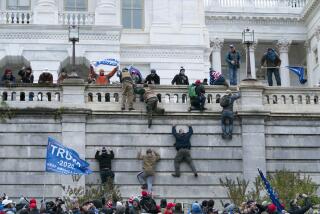Democracy in an Unusual Place : Algeria struggles to overcome a nasty history of authoritarianism
- Share via
Will Algeria become an exception in the Arab world?
For the last three years, President Chadli Bendjedid has been trying to replace one-party, socialist rule with a multi-party democracy. But opening up the political process has had an unintended consequence: a violent internal confrontation between secular and Islamic forces.
In the wake of widespread protests by the rival Islamic Salvation Front (FIS), President Bendjedid declared a four-month national state of emergency, dismissed the government and indefinitely postponed the elections that had been scheduled for June 27.
Since the unrest began, 1,300 Islamic activists have been arrested and nearly 50 people have been killed.
The crackdown interrupted the movement toward democracy that began in 1988 after deteriorating social and economic conditions spawned strikes and then anti-government violence across the country. Responding to the unrest, Bendjedid pushed for constitutional reforms.
The changes that have occurred are very significant, considering Algeria’s history of authoritarian rule.
After an eight-year war for independence from France, the National Liberation Front (NLF) transformed itself from an anti-French rebel movement to indigenous tyrant. It monopolized power in Algeria for nearly three decades, establishing a rigid socialist government, nationalizing industry and strangling agriculture.
When the NLF began to relinquish power by allowing rival parties, the FIS took advantage; last June it won big in local elections, landing twice as many seats as the FLN.
Now, political strength has emboldened radical members of the Islamic Front who threatened to overthrow the government and establish an Islamic state. This alarms many secularists.
The ruling FLN has sought to curb FIS influence, first by gerrymandering constituency boundaries, then by cracking down on ongoing protests and arresting leaders of the rival party.
But if parliamentary elections are permitted next October, there is no reason the principles of Islam and democracy cannot coexist.
With patience--and without interference from other fundamentalist countries--Algeria’s experiment with democracy can work. And, in time, the inspirational effects might just be felt throughout the Arab world.
More to Read
Sign up for Essential California
The most important California stories and recommendations in your inbox every morning.
You may occasionally receive promotional content from the Los Angeles Times.










